4 Things to Know about The Father, the Gut-Wrenching Movie about Alzheimer's
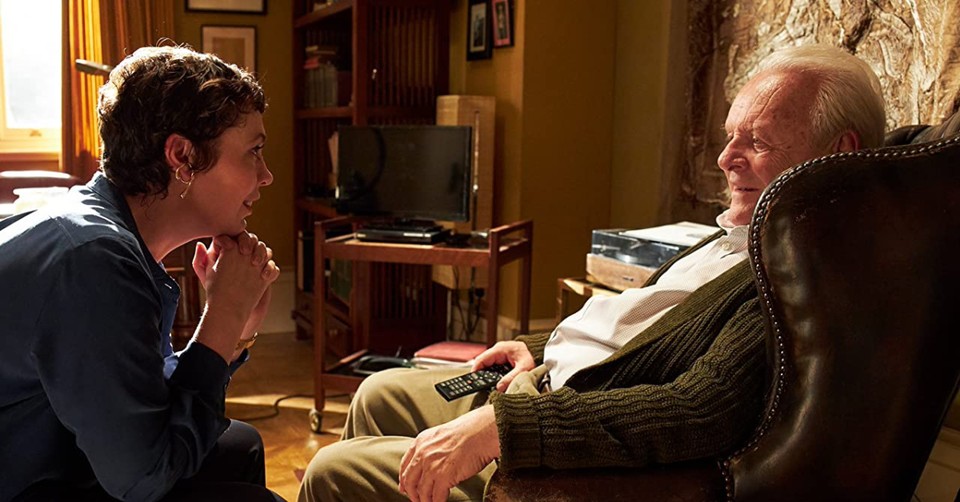
Anne is a caring, pensive woman in London who only wants the best for her elderly father, Anthony.
She tends to his needs. She prioritizes his health and safety. She even finds an assistant to help watch over him when she’s gone.
Tragically, though, her father rejects her assistance.
“I don’t need any help from anyone,” he says.
Yet he does need her help.
Anthony is slowly losing his memory, suffering from dementia and regularly forgetting facts he’s known most of his life.
Sometimes, he forgets Anne’s marital status. (She’s divorced). Other times, he forgets where he worked before retirement. (He was an engineer). Still other times he carries on conversations with imaginary people in the room.
Anne wants her father to be able to live by himself, but she fears what will happen to him if he doesn’t have someone watching his every move.
Anne’s father is dying in slow motion, and she’s grieving. She’s also desperate for a solution.
The new film The Father (PG-13) follows this story – a story close to the lives of millions of families. It stars Anthony Hopkins as the father and Olivia Colman as Anne.
Here are four things you should know:
Photo courtesy:
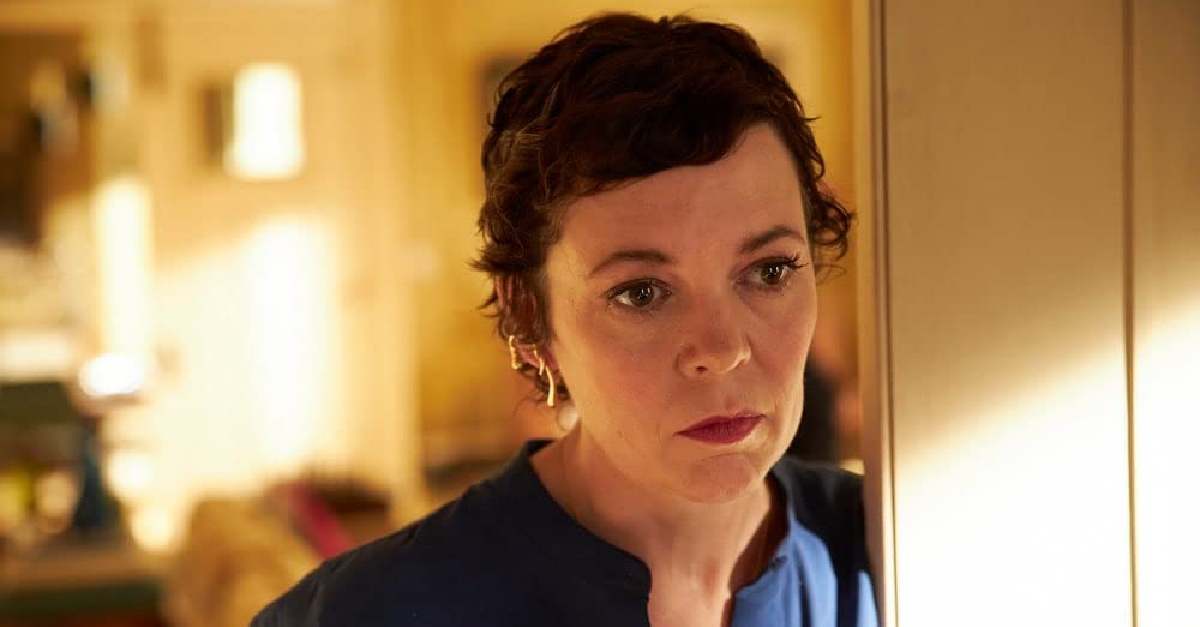
1. It's Agonizing … and Excellent
The Father is one of the year’s best films not because it leaves you inspired -- it doesn’t -- but because it paints a realistic, gut-wrenching picture of one family’s journey through the tragedy of Alzheimer’s.
The elderly father who enjoyed a successful career and a happy family life no longer remembers basic details of his life. He tells people he formerly was a tap dancer. (He wasn’t.) He wonders why his other daughter never visits. (She’s been dead for years.) He blames visitors for stealing his watch. (He left it in the bathroom.)
Anne sometimes chuckles at his antics. Other times, though, she’s driven to tears. The film’s most agonizing moments involve their interactions. He questions her motives. He berates her. He tells her that the other daughter – the one who’s been dead for years – was his favorite child. He also forgets where Anne lives. (Is it London … or Paris?).
Through it all, she tenderly loves her father, choosing to remember the good times they once shared. Every now and then, her father even acts like his former self. (“Anne, thank you for everything,” he tells her in one emotion-laden moment.)
The Father is a peak into the lives of the 6 million Americans who are living with Alzheimer’s. One in three elderly individuals dies with Alzheimer’s or another dementia. The Alzheimer’s Association says the disease kills more people than breast cancer and prostate cancer combined.
Hopkins, who is 83, delivers an Oscar-worthy performance. Colman does, too.
For many moviegoers, The Father will hit close to home.
Photo courtesy: ©Lionsgate
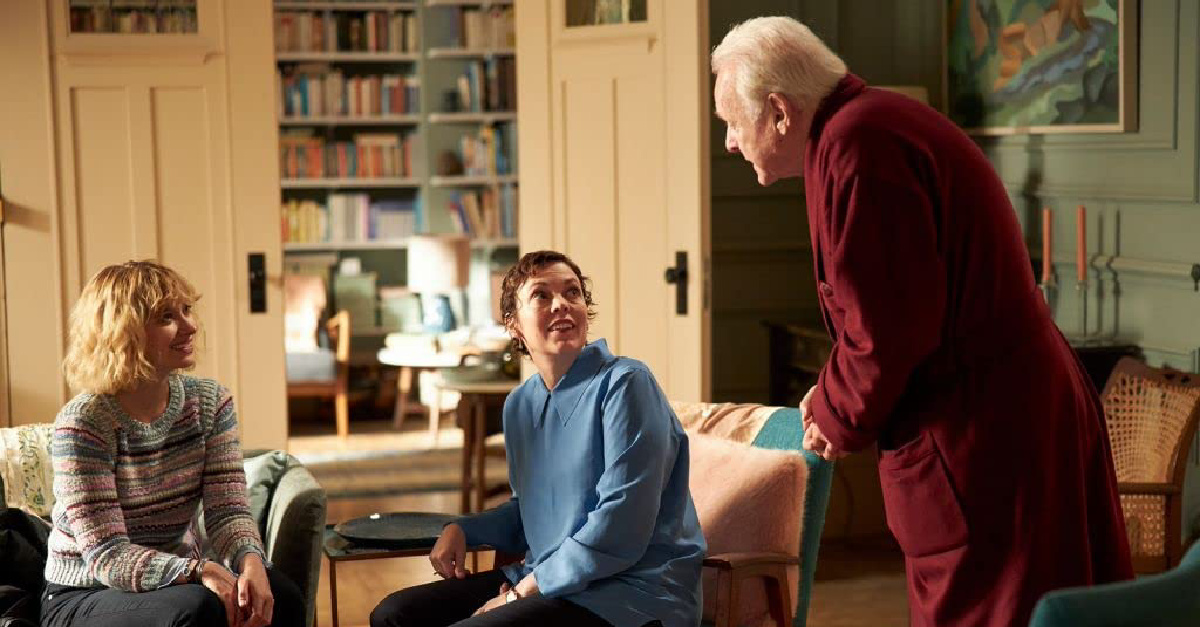
2. It Changes Your Perspective
The Father urges us to empathize with individuals suffering from this cruel disease. That’s because the story is mostly told through the father’s perspective. Thus, you see what he sees. And you’re confused, just as he is confused: Is that person he’s having a conversation with real, or a figment of his imagination? Does he have one living daughter, or two? Does the apartment belong to him, or his daughter?
It’s a marvelous method of storytelling that doesn’t unveil the truth until the very end.
You feel for Anne, yes, but you feel for the father, too.
Photo courtesy: ©Lionsgate
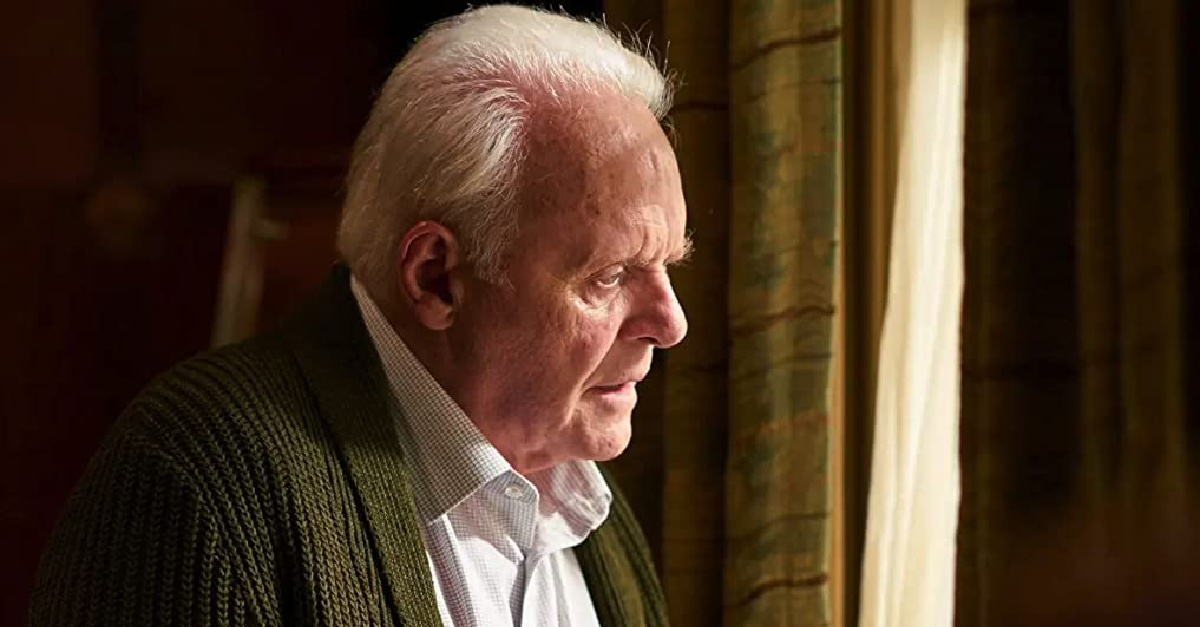
3. It Includes a Life-Affirming Message
The pro-life message in The Father is both subtle and loud.
Anne never delivers a rousing speech about the need to care for the elderly and the infirm. But it’s not needed, because her sacrificial actions speak volumes. She cleans up after him when he makes a mess. She displays patience when he angrily scolds her. She spends precious time and money to find him a daytime caregiver, only to have him curse the employee and send her away. Anne also rejects suggestions from her boyfriend to give up on her father.
She does all this because she loves her father – yes – but also because life is precious. Human life is not like a loaf of bread of a carton of milk that can be tossed when it’s no longer useful. Human life is precious because each of us is made in the image of God – even if we forget nearly everything we’ve learned.
Focus on the Family defines “pro-life” as the “belief that all human life is created equal regardless of size, level of development, education, and degree of dependency.” By that definition, The Father is a powerful pro-life film.
Photo courtesy:
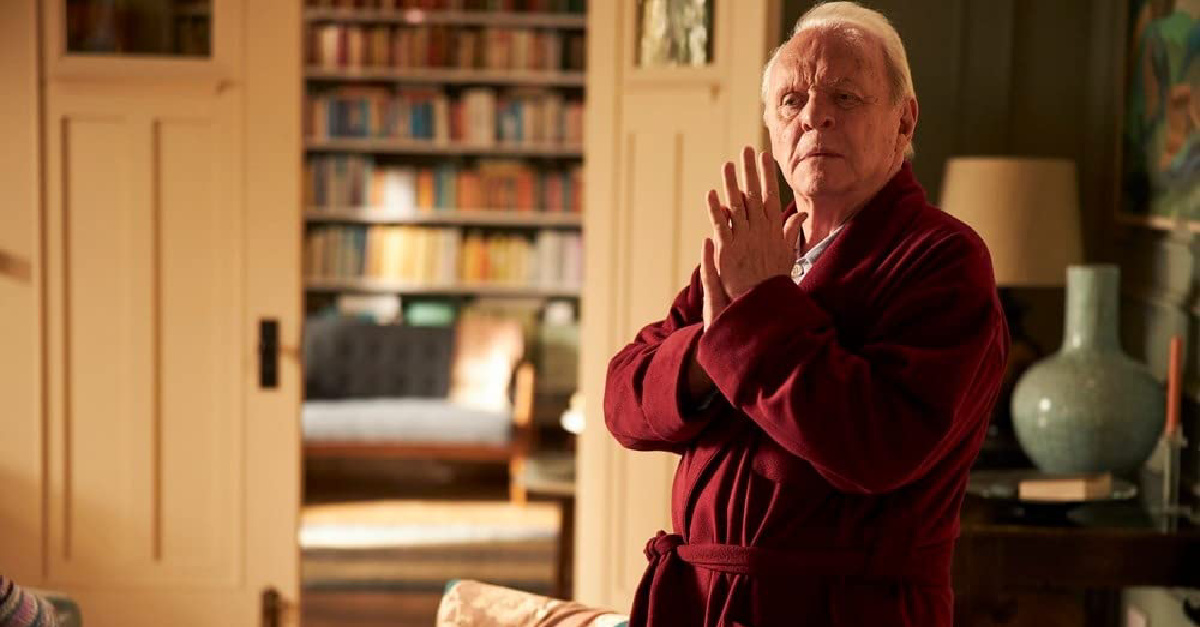
4. It Makes you Long for Heaven
The Father strikes at our heart because it reminds us of our frailty. Barring an early life tragedy, each of us will grow old. Each of us will become frail. And each of us will die. Maybe it will be from Alzheimer’s. Or heart disease. Or cancer. Or just simply old age.
The Christian, though, can have hope in the midst of such suffering, with an eye toward heaven. That’s because Jesus will “will wipe every tear” from our eyes (Revelation 21:4). After we die, “there will be no more death or mourning or crying or pain.” There also will be no more Alzheimer’s.
Perhaps The Father won’t inspire you. But it may encourage you to reach out to those who are suffering. It also may motivate you to love more, sacrifice more, and to live life with an eternal focus. That, alone, is a good reason to watch.
The Father is rated PG-13 for some strong language, and suggestive material. Content details: Sexuality (none), violence (we see an imaginary scene of someone smothering another person to death with a pillow), language (b--ch 2, f-word 2, t-ts 2).
Entertainment rating: 4 out of 5 stars.
Family-friendly rating: 3 out of 5 stars.
Photo courtesy:
Michael Foust has covered the intersection of faith and news for 20 years. His stories have appeared in Baptist Press, Christianity Today, The Christian Post, the Leaf-Chronicle, the Toronto Star and the Knoxville News-Sentinel.
Listen to Michael's Podcast! He is the host of Crosswalk Talk, a podcast where he talks with Christian movie stars, musicians, directors, and more. Hear how famous Christian figures keep their faith a priority in Hollywood and discover the best Christian movies, books, television, and other entertainment. You can find Crosswalk Talk on LifeAudio.com, or subscribe on Apple or Spotify so you never miss an interview that will be sure to encourage your faith.
Originally published March 12, 2021.




